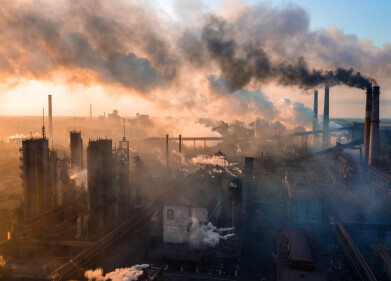Fuel for Thought
Why Are Oil Prices Dropping?
Nov 09 2014
As with all markets, the crude oil market depends largely on supply and demand. Since we know that there is a finite supply of oil left in the Earth, it’s logical to think that demand will outweigh supply, pushing prices up. However, the reality does not coincide with the hypothesis - prices have been dropping. Why?
Well, there are several factors which have contributed to the recent fall in prices across the globe, both on the supply and on the demand side of things.
Supply increase due to fracking
Despite the knowledge that the supply will one day run out, right now, that is not an immediate concern. Indeed, the world seems to be enjoying something of a glut in oil reserves. This is largely due to the widespread adoption of hydraulic fracturing (fracking) techniques, especially in the United States.
Indeed, the States are expected to overtake Saudi Arabia as world leaders in oil production in the near future. This is due to their vast resources of oil accessible by fracking, the relatively lax regulations on the process (in comparison to, say, European countries) and the level of competition in the industry. Companies vying for business are pushing the fracking industry forward and boosting the economy with it … which in turn, leads to greater supplies and thus lower prices.
The impact of fracking on oil prices and indeed on the world’s economy can be explored further in the article: Shale Plays Offer Unprecedented Opportunities.
OPEC unrest
Meanwhile, across in Asia, the leading countries seem to be involved in a price war amongst themselves, which has driven prices down. Saudi Arabia, who have long been the biggest producers of oil and who have reeled in their production amounts in previous crises to help bring prices back up, seem unwilling to do so this time.
This is most likely due to a reported price war with Kuwait - neither country wishes to lose their foothold in the Asian market and as a result are continually lowering prices to outstrip each other. As long as this continues, the prices will remain low.
Flagging demand across the globe
Projected demand has so far soared above actualities in 2014. Previous estimates placed non-OPEC oil demand at 1.68 million barrels per day, according to KAMCO, while the real figures are much lower. Never mind non-OPEC countries - total world demand for oil in 2014 is only expected to reach a paltry 1.05 million barrels per day.
This is due to a flagging European economy, a decline in demand in the traditionally colossal Chinese market and the ever-increasing focus on alternatives forms of energy production.
Renewable Energy Focus
Though fracking may have opened up a world of possibilities for US supply, concerns about its environmental impact have negatively affected the demand. This article, The Pros & Cons of Fracking, looks at some of the potentially harmful consequences of the practice, including the fear of usurpation of renewable energy investment.
Indeed, with the EU placing strict regulations on the energy production of its member states, crude oil (and fossil fuels in general) are becoming less and less in demand. Reaching the target of 20% renewable generation by 2020 means that companies and countries are turning away from crude oil and to greener means of energy production. This, of course, helps to reduce demand and consequently drive prices down.
Digital Edition
PIN 25.1 Feb/March
March 2024
In This Edition Safety - The technology behind the ION Science Tiger XT - Safety with ammonia and LOHCs as hydrogen carriers Analytical Instrumentation - Discussion on new tribology te...
View all digital editions
Events
Apr 22 2024 Hannover, Germany
Apr 22 2024 Marrakech, Morroco
Apr 22 2024 Muscat, Oman
Apr 22 2024 Rotterdam, Netherlands
Apr 23 2024 Singapore


















